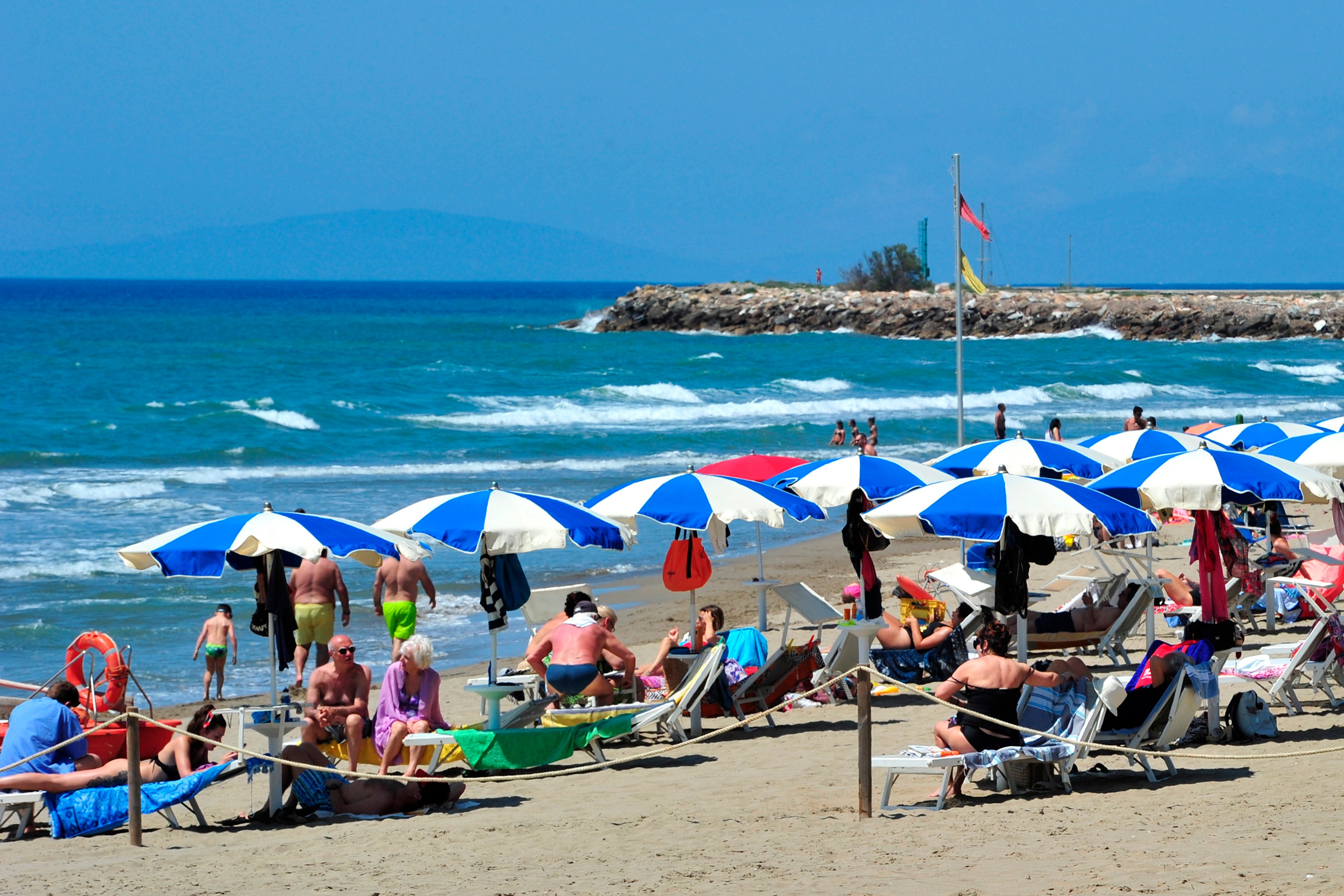Italy approves new rules that could make a visit to the beach a lot cheaper
The country approved new rules to put beach concessions up for bidding by 2027

Your support helps us to tell the story
From reproductive rights to climate change to Big Tech, The Independent is on the ground when the story is developing. Whether it's investigating the financials of Elon Musk's pro-Trump PAC or producing our latest documentary, 'The A Word', which shines a light on the American women fighting for reproductive rights, we know how important it is to parse out the facts from the messaging.
At such a critical moment in US history, we need reporters on the ground. Your donation allows us to keep sending journalists to speak to both sides of the story.
The Independent is trusted by Americans across the entire political spectrum. And unlike many other quality news outlets, we choose not to lock Americans out of our reporting and analysis with paywalls. We believe quality journalism should be available to everyone, paid for by those who can afford it.
Your support makes all the difference.Italy has approved new rules to put lucrative concessions for beach clubs up for bidding by June 2027, responding to pressing demands from the EU to open up the sector to new players.
Under the new legislation approved on Wednesday by the right-wing government led by Giorgia Meloni, existing beach licenses would remain valid until September 2027.
The deadline could be further postponed to March 2028 if there are “objective reasons” to delay the tender process, the government said.
The compromise seeks to address complaints by existing operators who risk losing their concessions and would be entitled to compensation paid by the new holders.
Tourists can sometimes pay more than 30 euros a day to rent loungers and umbrellas. Italy‘s beach clubs generated an overall revenue of 2.1 billion euros ($2.29 billion), according to the latest figures published by consultancy Nomisma in 2023.
The government received an average of 102 million euros per year from operating licenses between 2016 and 2020, under the latest data from Italy‘s Audit Court.

For almost two decades, the European Commission has been locked in a legal battle with Italy over its beach concession practices, accusing the country of lacking transparency and breaching competition rules.
Previous Italian governments, from left to right, have staunchly resisted EU directives requiring competitive tendering, persistently renewing the existing beach concessions without open procedures.
For years, many of these beach spots have been controlled by the same operators, often resulting in a lack of innovation and high prices.
Economists believe that opening the sector could bring in fresh players, potentially improving service quality and reducing costs for beachgoers.
Currently, they can pay from 25 euros to rent two chaise lounges and an umbrella for the day in the most basic establishments, to several hundred euros in fancy resorts such as Capri or Puglia’s Salento.
Italy‘s beach managers on August 9 opened two hours later than normal in parts of the country in protest at the proposals.
They argue that keeping beach concessions in the family keeps costs for beachgoers down and prevents Italy‘s 7,500 km (4,660 miles) of coastline from falling into the hands of big chains that might not respect local traditions.